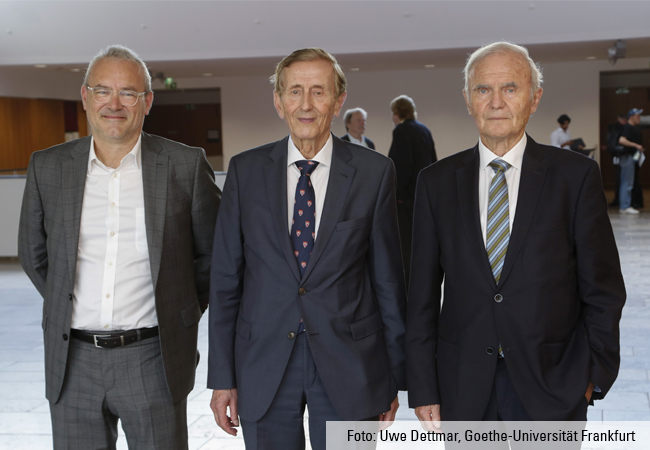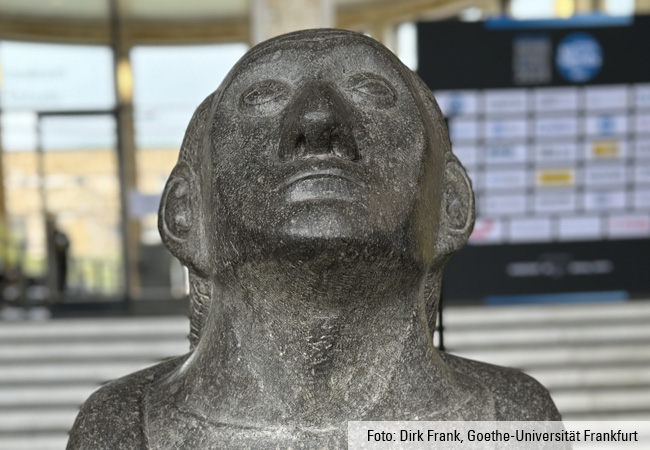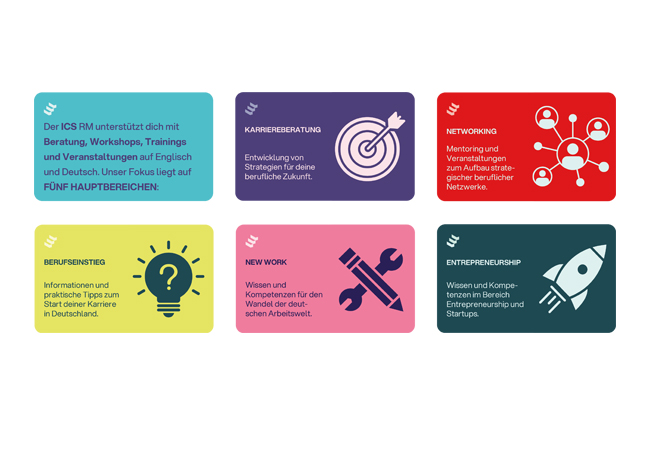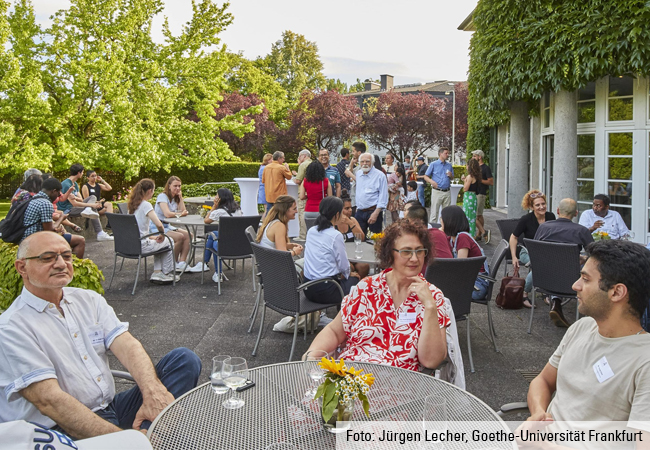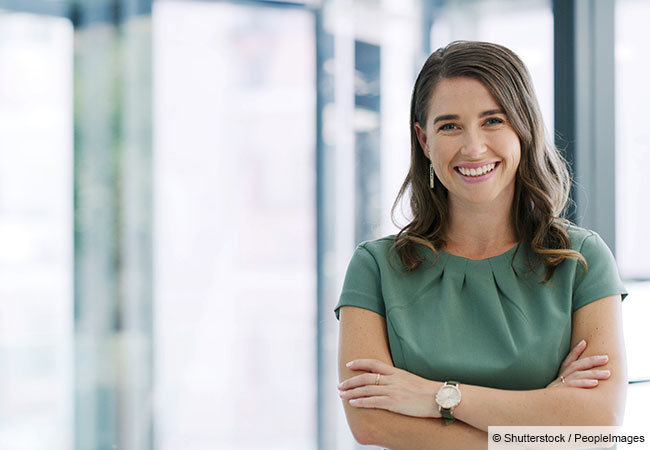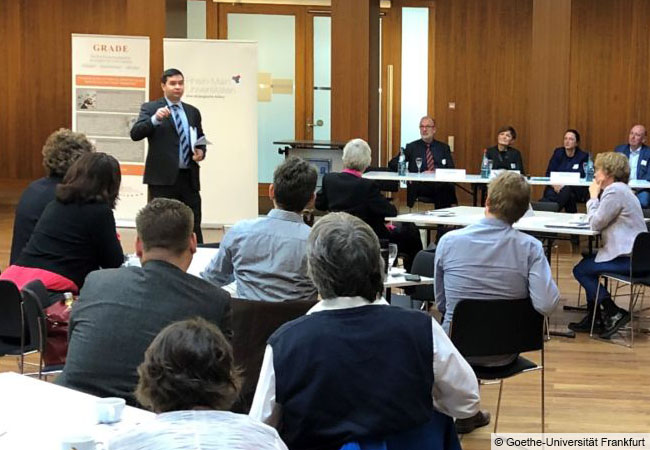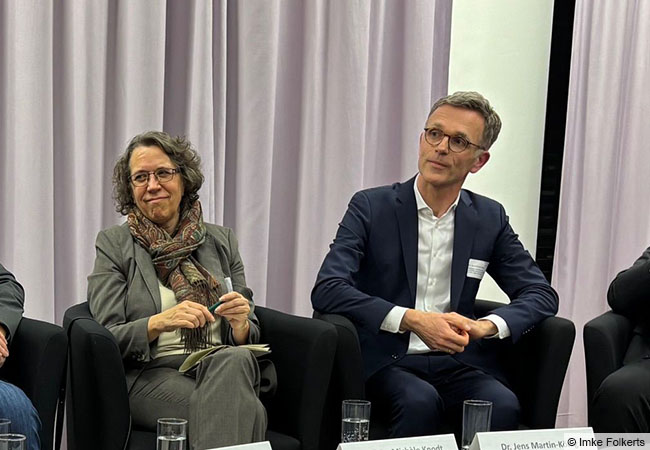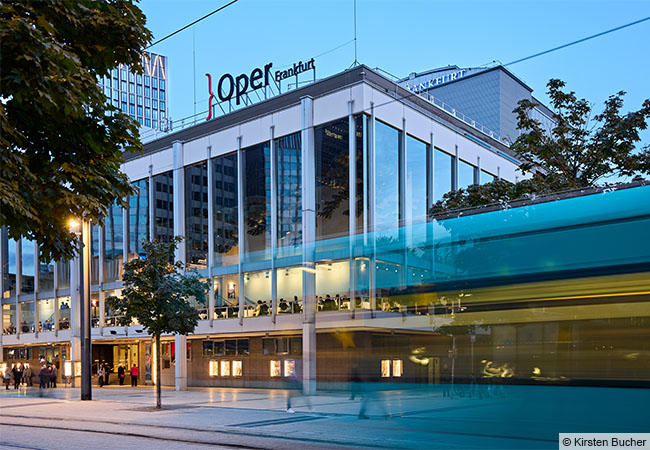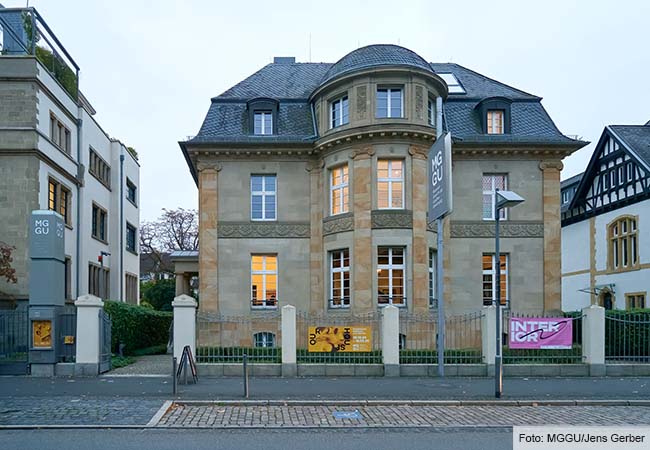On September 11 and 12, the final conference on the BMBF funding directive “Supportive Diagnostic Testing in Inclusive Education” was held at Goethe University, organized by the meta-project on inclusive education (MInkBi).
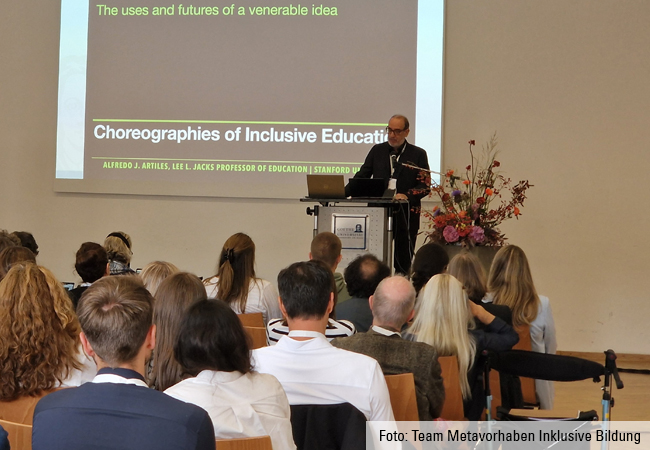
The conference was attended by members of the project, representatives of the Federal Ministry of Education and Research (BMBF) and the DLR, and educational practitioners. The event showcased instruments for supportive diagnostic testing developed by the research projects, and the participants discussed the prerequisites for successful transfer between research and practice in order to improve inclusion at German schools and further education institutions. One of the key questions was what role supportive diagnostic testing can play in this process.
A total of 150 scientists, educational practitioners, education administrators and educational policy-makers were present. The first conference day was devoted principally to internal scientific exchange in the field. The keynote speaker was Professor Alfredo Artiles from Stanford University, California. In his lecture on “Choreographies of inclusive education – The uses and futures of a venerable idea,” he illuminated the historical cultural connection between race, disability and discrimination, and how research into education in the U.S. is tackling it. This research, he said, must pay more attention to intersectionality such as the disadvantages at school facing handicapped children of color. Diagnostic testing could provide assistance here and help with appropriate individual support, by being applied to point up the children’s strengths instead of their weaknesses. However, the speaker added, it was important to combat potentially stigmatizing and discriminatory effects of diagnostic processes.
Prof. Artiles went on to say that this required lasting cooperation between research and practice designed for the long term. It was insufficient, he pointed out, to regard transfer merely as the forwarding of scientific material to educational institutions, and instead transfer had to be seen as a mutual process in which scientific results and transfer products were tried out by educational practitioners and developed in cooperation with the researchers. That would need a constant willingness on both sides to question their own standpoint and to change it if necessary.
The following scientific discussion forums were dedicated to various forms of diagnostic testing and their impacts in day-to-day education. In one forum on de-/re-/categorization with and by diagnostic testing, the research project InDiVers analyzed the procedure for determining special educational needs and showed how this often switches from the objective of individual support to stigmatization. This becomes clear, for example, in descriptions of children’s learning status that are formulated solely in negative terms and do not indicate the areas in which pupils have already acquired skills that could be further supported. In addition, the procedure for determining special educational needs was often used to exclude other forms of support from the outset and thus to suggest the absence of alternatives.
Structures in the school system and ongoing crises block successful inclusion
The second day of the conference was given over to discussions between researchers and practitioners, and began with a summary by the head of the MInkBi project, Prof. Dieter Katzenbach, of the state of inclusion and Germany’s poor implementation of the UN Convention on the Rights of Persons with Disabilities: “Mentioning the Convention now often only elicits a shrug of the shoulders, and that is worrying.” He said it was “difficult to predict” how inclusive education would develop. At present the tone was, “We’ll do something about it when we have the time and money.” In the discussion that followed on the subject of “research-practice transfer,” responding to the question from the moderator Dörte Maack, about what other countries were doing better than Germany to realize inclusion in schools, Prof. Kerstin Merz-Atalik from the Ludwigsburg University of Education highlighted the differences in school structures: “Other countries have different starting points, such as a general curriculum that is adapted to the individual. Furthermore, the teachers are used to dealing with heterogeneity.” Germany, in contrast, was “not giving sufficient consideration to children’s individuality,” said Merz-Atalik, who continued, “We must dismantle selective structures!” For this the German Government must also provide more impetus and guidance, she said.
“One school for all” and more special expertise in schools
Andreas Winkel, Commissioner of the Hessian State Government for People with Disabilities, was also critical of selection in German schools: “We need one school for all. Inclusion is a social model in which everyone lives together – we must not separate out certain individuals, otherwise we will lose those people. We have to move beyond the selective school system.” To get more children benefiting from the system, however, the mainstream schools also have to do more, stressed Dr. Dorothea Terpitz from the association Gemeinsam leben Hessen: “Mainstream schools have to take action, and here it’s important to have discussions early on. Special needs education is always brought in only when the school has reached its limits. Discussions with the parents should be sought earlier.” Dr. Susanne Gölitzer, Head of the Josephine-Baker-Gesamtschule Frankfurt am Main, also appealed for more supportive expertise in schools: “We need experts in the schools who know about certain needs, for example reading and spelling deficits. The need for special education is often determined only by special needs teachers and is rarely reviewed. Genuinely educational diagnostic testing is hardly ever carried out. We need diagnostic testing that involves everybody and is reviewed at intervals.”
Gallery walk and transfer workshops offer space for discussions
The conference participants then deepened the intensive and constructive dialog in several transfer formats. A gallery walk gave the educational practitioners, administrators and policy-makers an opportunity to talk with the projects at their stands and obtain information about scientific results and transfer products. Afterwards, these discussions on cooperative arrangements between research and practice, and the practical application of scientific tools for supportive diagnostic testing, were fleshed out in parallel, themed transfer workshops. The conference ended with a plenary session that once again underscored the importance of establishing functional networking between research and practice by involving all the partners, and the relevance of transferring project results into education in the field.
Stefan Katzenbach


